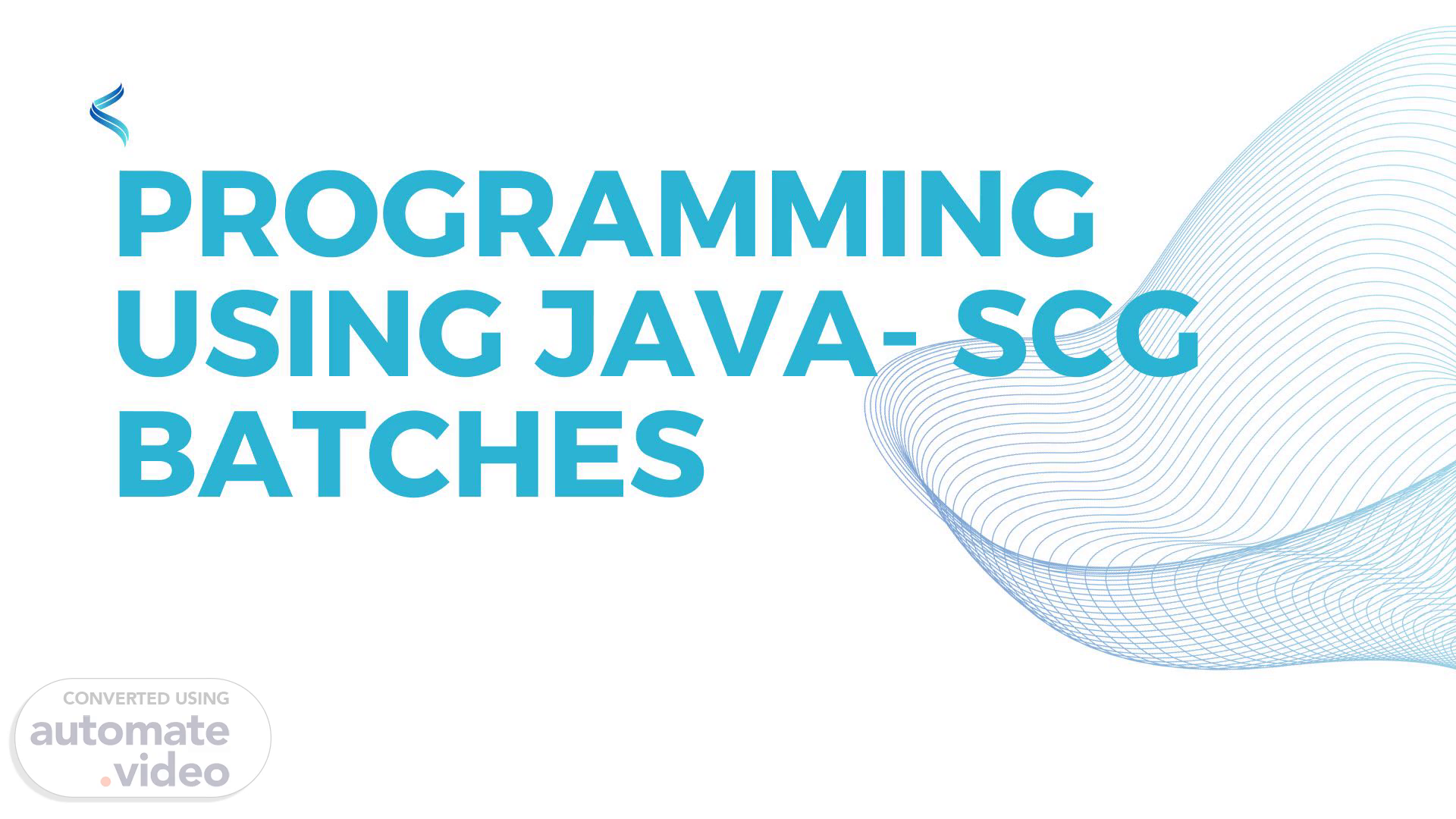Scene 1 (0s)
[Audio] Good morning ladies and gentlemen. We are here today to discuss Infosys Springboard, an innovative program designed to help individuals gain specialized industry-relevant training in the ever-evolving field of emerging technologies. Let us take a closer look at what Infosys Springboard offers and how it can benefit our learners..
Scene 2 (21s)
[Audio] The slide text details the presentation content, ranging from the company objectives to the learning outcomes. This presentation will demonstrate the programming process using Java-SCG batches and the difficulties associated with it..
Scene 3 (36s)
[Audio] Infosys Springboard is a unique educational platform which provides individuals with access to high-quality, industry-specific training. Created in collaboration with renowned academic institutions, the platform focuses on the latest and most relevant technological advancements. With Infosys Springboard, people from all backgrounds and experiences can acquire the skills necessary to succeed in this changing digital world..
Scene 4 (1m 4s)
[Audio] Objectives of this presentation are to understand and learn Java Programming and Object Oriented Programming, made possible with Java. We will explore the ways we can combine these languages to make more efficient applications through the use of development environment..
Scene 5 (1m 20s)
[Audio] We will begin by delving into the fundamentals of programming using Java and the ScG Batches. Selection Control Structures such as If and Switch statements will be covered. Iteration Control Structures are next on the agenda, followed by a discussion on memory management. We will also talk about inheritance and exceptions before wrapping up with a review of all modules discussed..
Scene 6 (1m 46s)
[Audio] "If statements are a powerful tool to control the flow of a program. They allow us to execute certain code blocks based on certain conditions. In Java, the "if" statement evaluates a boolean expression and, if the condition is true, will execute a block of code. This makes it an essential tool when dealing with complex and varied programming tasks..
Scene 7 (2m 11s)
[Audio] Switch statement is a powerful control structure used in programming. It helps to perform different actions based on different conditions of a single variable, making the code cleaner in Java and many other programming languages. As an example, we will look at a switch statement in action..
Scene 8 (2m 31s)
[Audio] Iteration control structures are an essential part of programming in Java. They are employed to repeatedly perform a block of code until a particular condition is satisfied or fulfilled. In Java, there are three main kinds of iteration control structures: the while loop, the do-while loop, and the for loop. The do-while loop is unique since it makes sure the code block is executed at least once, even if the condition is initially false. This is particularly convenient when a code block is required to be executed and then the condition is inspected afterwards..
Scene 9 (3m 9s)
[Audio] Methods are an essential part of programming in Java. They are blocks of code that can be called upon to perform specific tasks, and are useful for reusing code and organizing it in a modular fashion. Void methods are methods that don't return a value, and static methods are those that can be used even when an object doesn't exist. Both of these types of methods are fundamental to programming in Java and knowing when and how to use them is key..
Scene 10 (3m 37s)
[Audio] Memory management is an essential part of programming in Java. To ensure efficient and effective usage of system memory, Java uses garbage collection, heap, and stack. The heap is a memory region that holds all Java objects, while the stack stores variables and references to objects in memory. Garbage collection further ensures that memory resources are being used optimally..
Scene 11 (4m 3s)
[Audio] Inheritance is a powerful tool used in Java programming which allows classes to take on the properties and behaviors of their parent class. This is important as it creates a hierarchical relationship among classes and allows for code reusability, saving developers time and keeping their code efficient..
Scene 12 (4m 22s)
[Audio] Exceptions are essential for programming with Java as they help make sure that your code is secure and tolerant to errors. Try-catch blocks and throws clause are used in the method signature for checked exceptions to handle any unexpected or exceptional events arising during program execution. Unchecked exceptions, on the other hand, are typically associated with programming errors or conditions that are highly improbable to manifest in normal program implementation. Consequently, understanding how to deal with exceptions in Java is critical for writing effective code..
Scene 13 (4m 57s)
[Audio] Upon completion of this program, students will gain an understanding of key topics within Java programming and the SCG batch. They will be able to build and execute basic programs using ion, loops, input/output operations, and core java libraries. Furthermore, they will be familiar with the use of SCG batches to automate tasks in the context of running java programs..
Scene 14 (5m 24s)
[Audio] Java is a powerful programming language that provides a wide range of features and benefits. Nevertheless, it brings some challenges as well. Becoming familiar with complex syntax and object-oriented concepts can be a tough task for novice developers. Memory management also needs to be well mastered as Java deals with it differently than many other languages. Exception handling is an important part of composing good Java code and knowledge of the API and libraries is indispensable for getting the most out of the language. With practice and dedication, these difficulties can be conquered and Java can be an excellent development tool..
Scene 15 (6m 6s)
Thank You.
